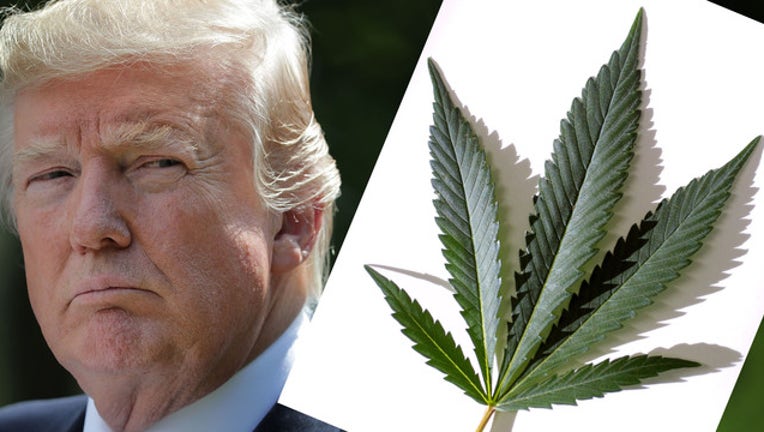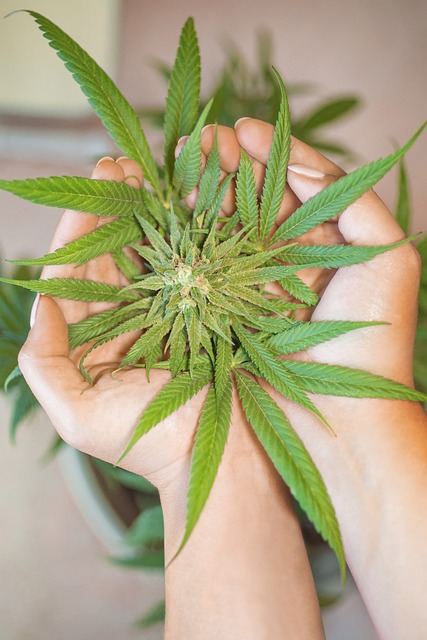
President Donald Trump’s Plans and Thoughts on Recreational Marijuana (Cannabis)

Where to get educated about President Donald Trump’s Plans and Thoughts on Recreational Marijuana (Cannabis) Marijuana (cannabis) legalization has become a pivotal issue in U.S. politics, with many states moving forward with policies that either decriminalize or fully legalize cannabis. Former President Donald Trump’s stance on marijuana has evolved throughout his political career, and his administration’s actions and statements on the issue have sparked considerable debate. This article examines President Trump’s plans and thoughts on marijuana, from his public remarks to the policies implemented during his time in office.
Donald Trump’s Initial Views on Marijuana
Before becoming president, Donald Trump had mixed statements regarding marijuana. In the early years of his political career, Trump indicated that he did not support marijuana legalization at the federal level but was somewhat more open to the idea of state-level decisions. He was largely in favor of allowing states to decide on cannabis laws without federal interference, a position that aligns with the broader conservative notion of states’ rights.
In 1990, Trump suggested that he didn’t believe marijuana should be legalized, citing concerns over its potential harmful effects. However, over time, his stance became more nuanced, particularly as public opinion shifted in favor of marijuana legalization. By the time he was running for president in 2016, Trump had softened his rhetoric, suggesting he was not opposed to marijuana legalization in general.
Trump’s 2016 Presidential Campaign and Marijuana Stance
During his 2016 presidential campaign, Trump’s position on marijuana legalization was somewhat vague. He was not an advocate for marijuana but also expressed hesitance about federal interference in state-level decisions. At various points, Trump emphasized that he would let states decide whether they wanted to legalize cannabis for medical or recreational use.
Trump stated, “I’m a states’ rights person,” and during a campaign interview, he mentioned that he would not be “looking to get involved with it.” He indicated that he was not strongly opposed to legalization but believed that it should be up to individual states to decide whether they wanted to legalize cannabis. This position seemed to support the ongoing trend of state-level legalization seen in states like Colorado and California.
The Trump Administration’s Actions on Marijuana
While Trump’s personal views on marijuana were generally hands-off, his administration took several key actions that affected cannabis policy in the U.S.
The Jeff Sessions Era and the War on Cannabis
One of the most significant developments during Trump’s presidency was his appointment of Jeff Sessions as Attorney General. Sessions was an outspoken critic of marijuana legalization and was known for his tough-on-crime policies. As Attorney General, Sessions attempted to roll back the Obama-era policies that provided federal protections to state-legal cannabis markets.
In January 2018, Sessions rescinded the Cole Memorandum, an Obama-era policy that had instructed federal prosecutors not to interfere with state-legal cannabis businesses in states where marijuana had been legalized. Sessions argued that marijuana’s legalization had led to an increase in criminal activity and illegal trafficking, despite little evidence to support such claims. This move alarmed marijuana advocates and state lawmakers, as it left the door open for federal enforcement against marijuana-related activities in states that had legalized it.
However, despite the rhetoric from Sessions and other members of the administration, the Trump administration never aggressively pursued federal crackdowns on cannabis. In fact, many cannabis businesses and state lawmakers continued to operate under the assumption that the federal government would not interfere with state laws unless there was clear evidence of cross-border drug trafficking or violence.
Congressional Support for Marijuana Legalization
Despite setbacks caused by the Sessions-era policies, there was growing support for cannabis legalization in Congress during Trump’s presidency. Several bills aimed at either legalizing cannabis at the federal level or protecting state-level cannabis businesses from federal interference were introduced during Trump’s time in office.
One notable bill was the Strengthening the Tenth Amendment Through Entrusting States (STATES) Act, which was introduced by Senators Cory Gardner (R-CO) and Elizabeth Warren (D-MA). The bill aimed to protect states that had legalized cannabis from federal prosecution. This bill was endorsed by Trump, who signaled that he would support measures that provided protections for state-legal cannabis markets.
In 2019, Trump surprised many when he stated that he was open to supporting legislation that would allow states to legalize marijuana without federal interference. His statement provided hope to marijuana advocates who feared that the federal government would stifle the growing cannabis industry. Although the STATES Act and similar bills did not become law, Trump’s backing of state-level legalization suggested a potential shift toward greater acceptance of marijuana use.
The First Step Act and Cannabis Criminal Justice Reform
President Trump’s administration also took steps toward criminal justice reform with the signing of the First Step Act in December 2018. While the act was primarily focused on reducing mandatory minimum sentences for non-violent offenders, it indirectly impacted cannabis-related offenses. Many people imprisoned for marijuana-related offenses were able to benefit from the act’s sentencing reforms.
The move toward criminal justice reform signaled a more progressive approach to cannabis issues within the Republican Party, as more conservatives began to see the benefits of reducing incarceration rates for marijuana-related crimes. While the First Step Act did not directly address marijuana legalization or decriminalization, it paved the way for a broader conversation about cannabis policy reform, including issues like expunging marijuana convictions.
Public Opinion and Trump’s Evolving Stance on Marijuana
Trump’s views on marijuana continued to evolve throughout his presidency. As public support for marijuana legalization grew, particularly among younger voters, it became politically advantageous for Trump to adopt a more lenient stance. According to polls, a majority of Americans, including a large portion of Republicans, supported marijuana legalization for both medical and recreational purposes by the time Trump left office.
During his presidency, Trump rarely took a hard-line stance on cannabis but instead followed the changing public opinion and allowed for states to move ahead with legalization. This hands-off approach reflected his broader philosophy of supporting states’ rights and avoiding unnecessary federal intervention.
Trump’s Final Thoughts on Marijuana
In the later years of his presidency, Trump expressed support for medical marijuana and signaled that he was open to discussing broader cannabis legalization. He acknowledged that the medical benefits of marijuana were increasingly recognized and indicated that he did not see a reason for the federal government to interfere with state cannabis laws.
Trump’s public statements about marijuana suggested that, while he personally was not eager to push for nationwide legalization, he was not against allowing states to make their own decisions. His administration did not push for new anti-marijuana policies but also did not advocate for full federal legalization. President Donald Trump’s Plans and Thoughts on Recreational Marijuana.
Conclusion: What’s Next for Marijuana Under Future Presidents?
While Donald Trump’s presidency did not result in sweeping marijuana reforms, his administration did lay the groundwork for future discussions on cannabis legalization. Through his support for state-level decisions, the endorsement of the STATES Act, and his backing of criminal justice reform, Trump positioned marijuana policy as a state issue rather than a federal one.
As marijuana legalization continues to gain momentum in the U.S., future presidents will likely face increased pressure to address the issue at the federal level. Whether through decriminalization, full legalization, or expunging past marijuana convictions, the next steps in marijuana policy will be shaped by the evolving views of lawmakers, the cannabis industry, and the public.
President Trump’s mixed but generally laissez-faire stance on marijuana left the issue in the hands of states, signaling that the debate over cannabis in the U.S. is far from over.
